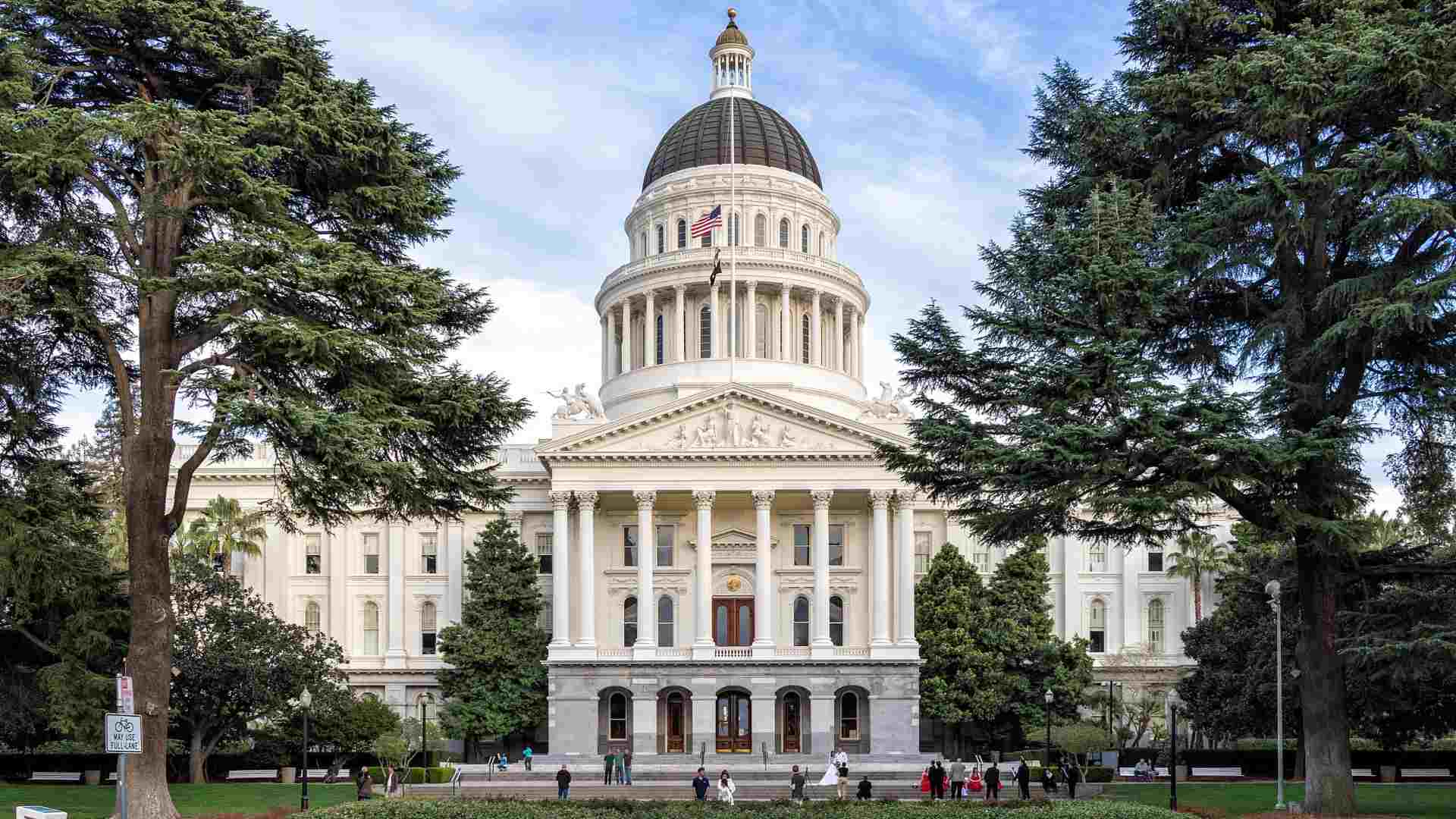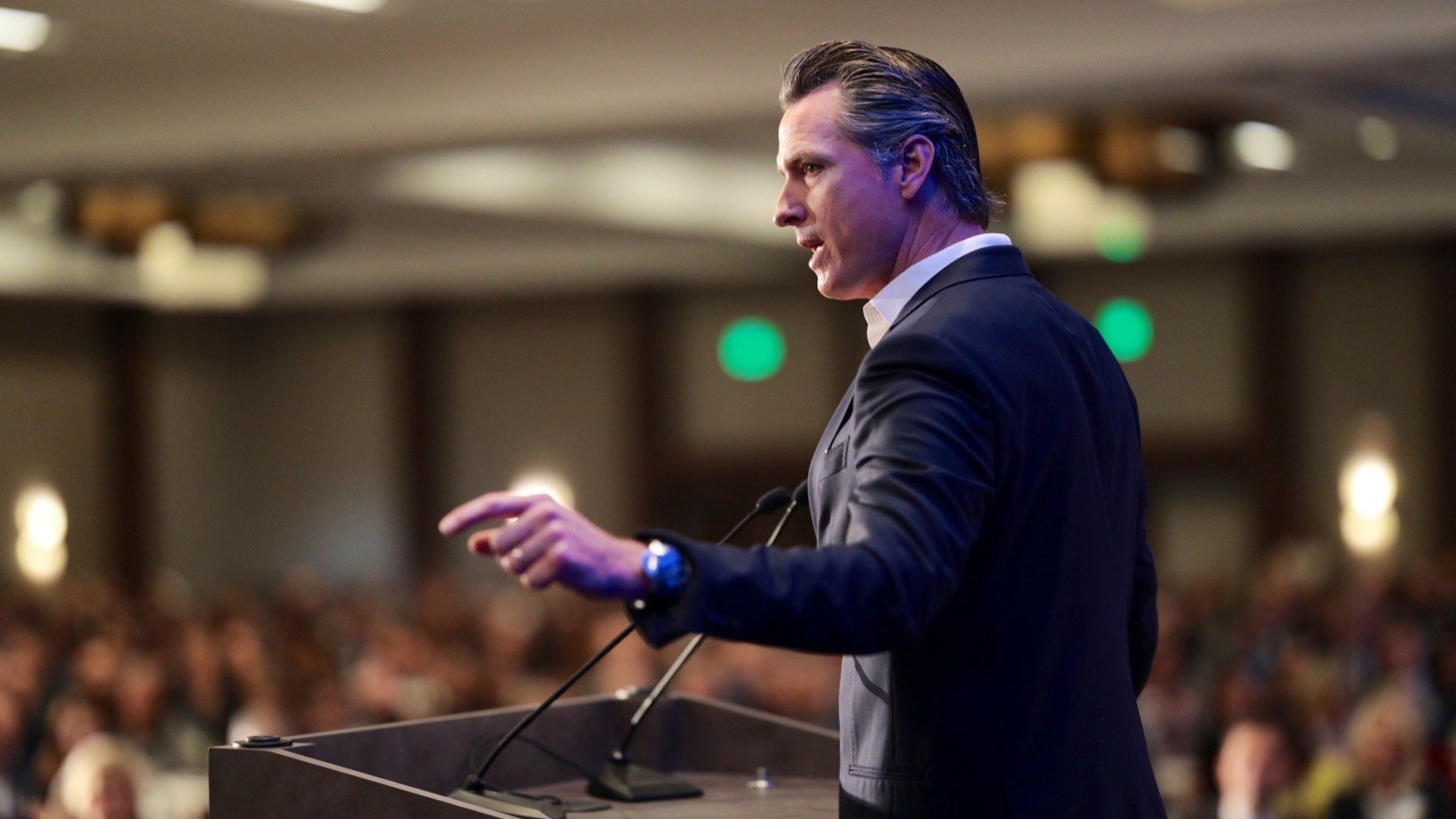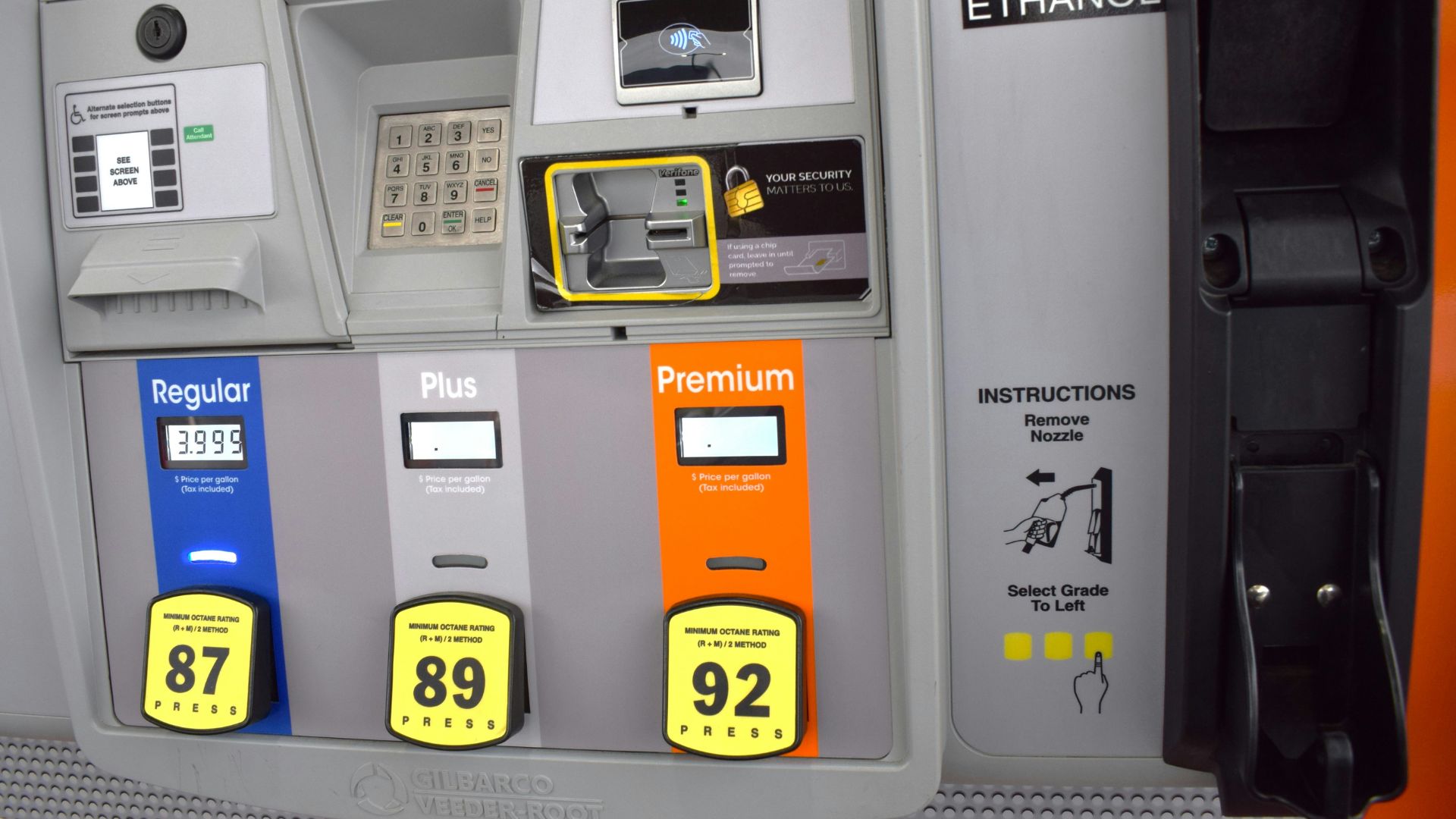The two governors of Nevada and California are now publicly sparring after a letter sent by Governor Joe Lombardo to Gavin Newsom on Thursday warning him about the potential pitfalls of his policies on high gas prices.
In response to the letter, Newsom’s staff accused Lombardo of being corrupted by Big Oil donors, and that he is attacking Newsom as a political stunt.
Lombardo Letter

This week, Nevada Governor Lombardo addressed a letter to Governor Newsom over gas price concerns that will affect both their states.
“Dear Governor Newsom: I’m writing to you today to voice my concerns about rising gas prices, an area of acute concern for both Californians and Nevadans. As you know, both of our states have gas prices far above the national average for a variety of factors, including regulatory burdens, taxes, and pipeline accessibility,” Lombardo wrote
California Affecting Nevada

Lombardo, a Republican, took issue with the fact that decisions made in California have a huge impact on the gas prices in his state of Nevada.
“Since 88 percent of Nevada’s fuels are delivered via pipeline and truck from refineries in California, it’s not surprising that California’s fuel policies significantly impact the costs and availability of field for Nevada’s residents and businesses,” wrote Lombardo.
Legislation SBX1-2

In the letter, Lombardo brought up his opposition to California’s recently passed SBX1-2, colloquially known as the California Gas Price Gouging and Transparency Law.
“I wanted to express my concerns about the unintended consequences of California’s SBX1-2 legislation, which could further raise gas prices for both of our constituencies,” Lombardo wrote.
What is SBX1-2?

Signed into law in March last year, SBX1-2 establishes protections for California consumers who experience price gouging by gas and oil companies when pumping gas for their vehicles. The argument for the law is that oil companies take advantage of refinery maintenance periods to discretely upcharge customers out of a pure profit motive.
“With this legislation, we’re ending the oil industry’s days of operating in the shadows. California took on Big Oil and won. We’re not only protecting families, we’re also loosening the vice grip Big Oil has had on our politics for the last 100 years,” said Newsom in an announcement at the time.
Refinery Maintenance and Gas Prices

The California lawmakers supporting the legislation accuse oil companies of taking advantage of maintenance periods to artificially reduce the supply of gas, which will drive up prices and lead to them making more money.
SBX1-2 requires gas companies to be more transparent by creating an independent watchdog group with the sole purpose of monitoring this behavior and empowers the California Energy Commission (CEC) to impose penalties on companies who are found to be engaging in it.
Lombardo’s Issue

While this law sounds like a win for customers who are experiencing gas price spikes, Lombardo was insistent that it would actually accomplish the opposite of its intended effect.
“As my administration has followed this issue, it seems that the new state agency the legislation created is getting closer to announcing a profit caps structure. While we have no details on what this might look like, I’m concerned this approach could lead to refiners either constraining supplies of fuels to avoid a profit penalty or even leaving our shared fuels market entirely,” wrote Lombardo in his letter to Newsom.
Limited Supply

As a basic rule of economics, when supply falls and demand is high, prices typically rise. Lombardo is worried about a scenario where fuel supplies are more limited and cannot meet demand, or a scenario where higher fuel costs hurt residents in both Nevada and California.
“Either scenario would likely lead to limited supplies and higher fuel costs for consumers in both of our states,” said Lombardo.
Angry Response

In a statement to Politico, Newsom spokesperson Alex Stack threw out accusations critical of Lombardo’s motivations.
“This is a stunt to appease Governor Lombardo’s Big Oil donors, who contributed tens of thousands of dollars to his campaign,” Stack said.
Talking Parrot

Stack would go further to insult Lombardo, likening him to an oil industry parrot.
“He’s parroting their talking points, and he knows full well that oil refiners are driving up gas prices and making massive profits — harming residents of both of our states. Price spikes are profit spikes, and California is holding Big Oil accountable,” said Stack.
Newsom’s Opposition to Oil

Governor Newsom has created a reputation for fighting big oil companies whenever he gets the chance, preferring to emphasize state efforts to embrace green energy and help fight climate change. In September, Newsom accused oil companies of deceiving the public on climate change and blamed them for a host of problems.
“For more than 50 years, Big Oil has been lying to us — covering up the fact that they’ve long known how dangerous the fossil fuels they produce are for our planet,” Newsom said. “California taxpayers shouldn’t have to foot the bill for billions of dollars in damages — wildfires wiping out entire communities, toxic smoke clogging our air, deadly heat waves, record-breaking droughts parching our wells.”
Future of the Feud

Now that Newsom has delivered an official response through a spokesperson that upped the ante on insults, it’s possible that this is not the end of the feud.
Lombardo thus far has chosen not to fire back with his own incendiary insults, but even if he doesn’t respond, the issue of gas prices is not going away anytime soon. This makes a reignition as likely as fire around gasoline.
Historical Context of Interstate Policy Conflicts

Conflicts over resources between California and its neighbors are not new. Historical disputes, such as water rights in the Colorado River, highlight the longstanding nature of these issues.
Similar to the gas price feud, these conflicts often stem from competing economic and environmental priorities.
Environmental Implications

The gas price feud between California and Nevada shows broader environmental concerns. Newsom’s push for green energy contrasts sharply with Lombardo’s focus on economic impacts.
This clash highlights the tension between environmental sustainability and economic stability. Both governors face pressure to balance these priorities, especially as climate change increasingly influences policy decisions.
Public Opinion and Political Fallout

Public opinion in both states is deeply divided over the gas price feud. Polls show Californians largely support Newsom’s environmental stance, while Nevadans are concerned about economic repercussions.
This division could have significant political fallout, particularly for Lombardo, who faces criticism for prioritizing industry interests over consumer protection. The feud’s outcome may influence voter sentiment in upcoming elections.
Comparative Analysis of Gas Price Policies

Comparing California and Nevada’s gas price policies reveals stark differences. While California emphasizes regulatory measures like SBX1-2 to protect consumers, Nevada focuses on minimizing economic impact.
Other states, like Texas, take varied approaches, balancing regulation with market freedom. These differences highlight the complexity of managing gas prices across diverse political and economic landscapes.
Future of Energy Policies

The future of energy policies in California and Nevada remains uncertain. California’s aggressive push towards renewable energy contrasts with Nevada’s cautious approach.
Potential new legislation could further widen this gap. Innovations in clean energy technology might offer solutions, but cooperation between the states is crucial.
Role of Big Oil in State Politics

Big Oil’s influence looms large in the gas price feud. Campaign contributions and lobbying efforts shape policies in both states. Critics argue that Lombardo’s stance aligns closely with industry interests, while Newsom’s policies challenge this power.
The political clout of oil companies raises questions about transparency and accountability in state politics, influencing the broader debate on energy and the economy.
Legislative Responses and Proposals

In response to the feud, new legislative proposals are emerging. California legislators are exploring further measures to regulate gas prices and enhance consumer protection.
Meanwhile, Nevada lawmakers consider policies to mitigate economic impacts on residents. These proposals highlight differing approaches to solving the same problem, reflecting broader political and ideological divides between the states.
Russian Oil and Gas Reserves Discovery

Adding to the complexity, recent discoveries of massive oil and gas reserves by Russian research ships in the British Antarctic territory could shift global energy dynamics. With around 511 billion barrels of oil, these reserves might impact global supply and prices.
This development introduces another layer to the California-Nevada feud, as shifts in global oil markets could influence regional policies and economic strategies.
Economic Interdependence of California and Nevada

California and Nevada’s economies are deeply interdependent, particularly in the energy sector. Decisions made in California ripple through to Nevada, affecting everything from gas prices to supply chain logistics.
This interdependence complicates the feud, as each state’s policy decisions can have unintended consequences for the other, underscoring the need for collaborative solutions.
Technological Advancements in Renewable Energy

Advancements in renewable energy technologies offer potential solutions to the gas price feud. Innovations in solar, wind, and battery storage can reduce dependence on fossil fuels. Both states could benefit from investing in these technologies, potentially easing tensions.
Emphasizing renewables aligns with California’s environmental goals and could provide economic stability for Nevada, fostering a more sustainable energy future.
Long-Term Economic Impact Analysis

Analyzing the long-term economic impacts of the gas price feud reveals potential risks and benefits. California’s regulatory approach aims to stabilize prices but may lead to higher costs in the short term.
Nevada’s focus on economic impact seeks immediate relief but could face future instability. Understanding these dynamics is crucial for developing balanced, effective policies that address both economic and environmental concerns.
Collaborative Efforts for Sustainable Solutions

Despite their differences, California and Nevada can benefit from collaborative efforts to address gas prices. Joint initiatives on renewable energy, shared infrastructure projects, and coordinated policy measures could provide sustainable solutions.
By working together, both states can mitigate the negative impacts of the feud, fostering a cooperative approach that balances economic and environmental priorities for the benefit of their residents.
